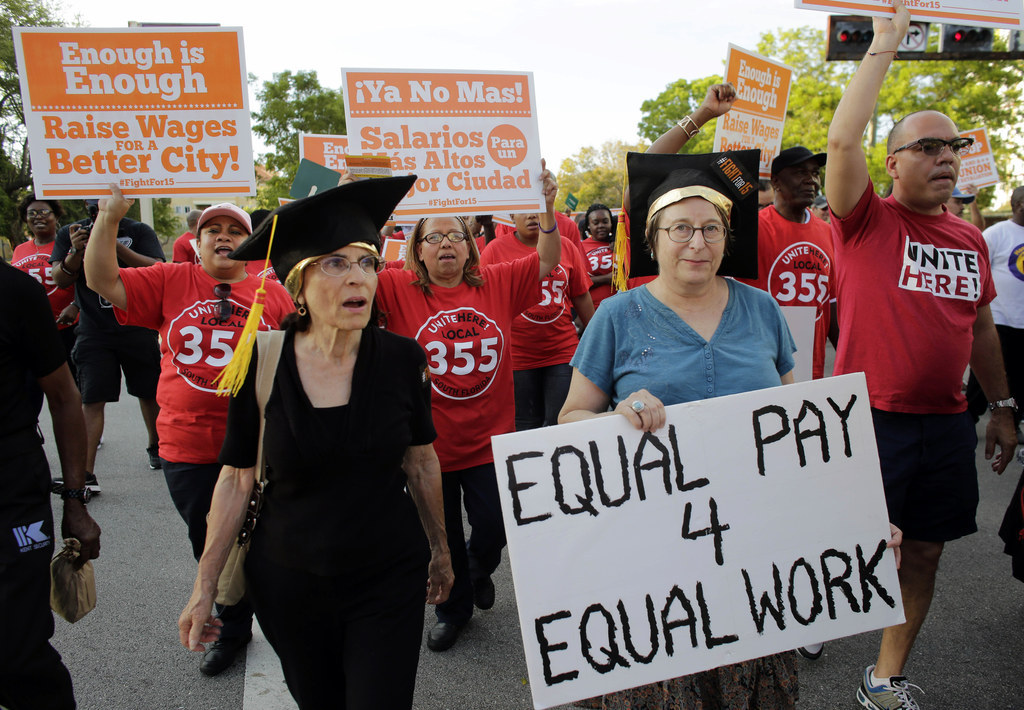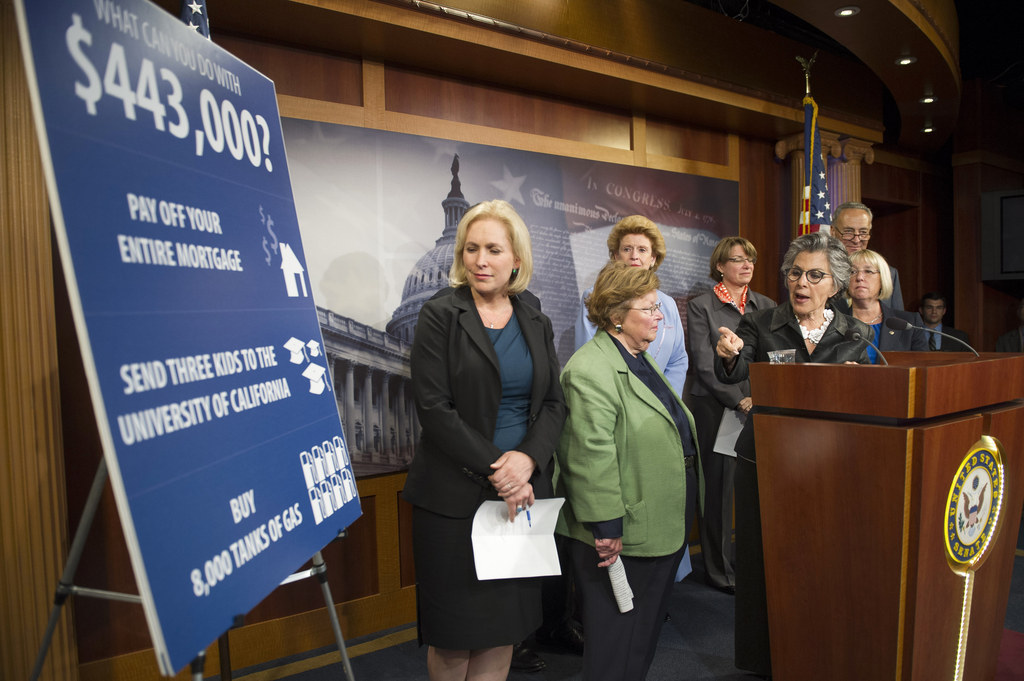
California adopted the toughest equal pay legislation in the country this week, altering key language to improve enforcement and increasing protections for workers from retaliation.
The California Fair Pay Act, signed by Democratic Governor Jerry Brown Tuesday, will hold employers to a higher, more rigorous standard than they face in other states when it comes to paying men and women equally for equal labor.
Here's what it means for women working in California — and the companies employing them.
Awaiting start of @jerrybrowngov signing ceremony of my #sb358 #equalpay
Equal pay even if job titles aren't exactly the same.
Under the new law, women and men who do "substantially similar" work must now receive equal pay. Previously, employers focused on the the term "equal work" in regulations to excuse gendered discrepancies in pay, law-makers say. If employees had different titles or worked in different offices, for example, lawyers used those details to claim the work was not identical.
According to state Sen. Hannah-Beth Jackson (D-Santa Barbara), who wrote the newly-signed act, courts have too often interpreted fair pay laws to mean workers must hold exactly the same job to receive equal pay. Now, employers will shoulder a heavier burden of proof to demonstrate any existing pay gap is tied to skill or seniority, rather than gender.
This means a woman cleaning hotel rooms now has a stronger case that she should be paid as much as a man cleaning the hotel's lobby, Jackson offered. A grocery clerk at one location may now more effectively claim she should be paid as much as the male clerk at a comparable store owned by the same company.

No retaliation for equal pay efforts.
The law toughens protections for workers from retaliation, so they can better share and discover salary information without fear of consequences. All American workers have a legal right to discuss pay with their coworkers, but strong taboos and social stigma persist, as well as workplace atmospheres that discourage the practice.
Under the Fair Pay Act, once a complaint is filed with the Division of Labor Standards Enforcement, the division may investigate the claim and request wages on behalf of employees, while keeping the initial complainant anonymous.

Why this matters:
Women working full time in California make a median salary of $42,486, according to Census Bureau data — more than $8,000 less than the $50,539 median yearly income of a full-time working man. That works out to women making 84 cents for every dollar men make. And that's the median — the reality is much more dire for black and Hispanic women, who face both gender and racial gaps. Black women make 64 cents on the dollar, Latinas 44 cents.
Nationally, American women make 79 cents for every dollar earned by men. The Center for American Progress calculated that due to this pay gap, the average American woman will lose about $431,000 over the course of a 40-year career. And pay gaps in one workplace can follow a woman for life, if future employers base their pay on salary history.
Both the California Chamber of Commerce and most state Republican lawmakers supported the new legislation, and the bill could be a model for other states. The new rule goes into effect January 1 and will likely receive legal challenges.
